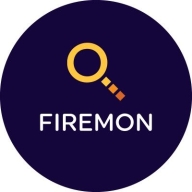

Fortinet FortiManager and FireMon Asset Manager compete in network security management. FireMon Asset Manager has the upper hand due to a more comprehensive feature set, despite higher cost.
Features: Fortinet FortiManager offers centralized management, policy automation, and advanced analytics. FireMon Asset Manager provides continuous network visibility, security policy management, and risk analysis. FireMon's analytical capabilities and visibility tools excel in complex security infrastructure management.
Ease of Deployment and Customer Service: Fortinet FortiManager allows straightforward deployment with robust customer service, suitable for those new to network security management. FireMon Asset Manager needs more technical expertise but gives extensive support and resources. Fortinet's simplicity in setup is notable, while FireMon offers richer support resources.
Pricing and ROI: Fortinet FortiManager is favored for competitive pricing and good ROI through efficient management capabilities. FireMon Asset Manager has a higher initial cost but provides significant ROI with its comprehensive features and strategic insights. Fortinet facilitates immediate savings with lower initial costs, while FireMon’s long-term advantages justify its premium for detailed network analysis.
| Product | Market Share (%) |
|---|---|
| Fortinet FortiManager | 5.0% |
| FireMon Asset Manager | 0.2% |
| Other | 94.8% |


| Company Size | Count |
|---|---|
| Small Business | 33 |
| Midsize Enterprise | 15 |
| Large Enterprise | 19 |
FireMon Asset Manager provides insightful monitoring and management of your network assets, helping organizations maintain security compliance and optimize asset usage effectively.
FireMon Asset Manager offers a comprehensive view of network assets, assisting in identifying security compliance gaps and optimizing resource utilization. Designed for enterprises requiring robust asset monitoring, it ensures efficient tracking, enabling proactive threat management and policy adherence across digital environments.
What are the important features of FireMon Asset Manager?In industries like finance and healthcare, FireMon Asset Manager plays a crucial role by providing meticulous asset tracking essential for maintaining stringent compliance requirements. It enables organizations to swiftly adapt to changing regulations and safeguard sensitive information effectively.
Fortinet FortiManager is used for centralized management of FortiGate firewalls, utilizing zero-touch deployment techniques to optimize configuration and deployment, reducing installation time and errors while improving network security and efficiency.
By centralizing policy management and monitoring across devices and locations, Fortinet FortiManager enhances security and operational efficiency. Automation tools simplify management, control, and consistent configuration across environments. It offers scalability for managing large numbers of devices, beneficial for organizations seeking unified threat protection and streamlined administration from one console. The platform integrates effortlessly with Fortinet products, supporting zero-touch provisioning, SD-WAN, and traffic analysis. Although intuitive, the graphical interface and overall performance require refinement, alongside enhanced support and documentation for troubleshooting and configuration.
What are the key features of Fortinet FortiManager?Fortinet FortiManager is implemented across diverse industries like telecommunications, finance, and healthcare, where centralized management and enhanced security are crucial. Its ability to streamline processes and integrate with existing Fortinet products makes it ideal for organizations looking to maintain robust network security standards.
We monitor all Network Management Applications reviews to prevent fraudulent reviews and keep review quality high. We do not post reviews by company employees or direct competitors. We validate each review for authenticity via cross-reference with LinkedIn, and personal follow-up with the reviewer when necessary.